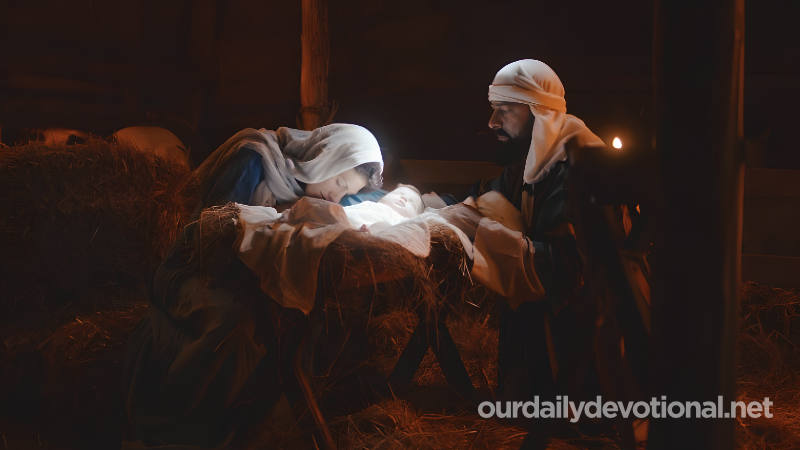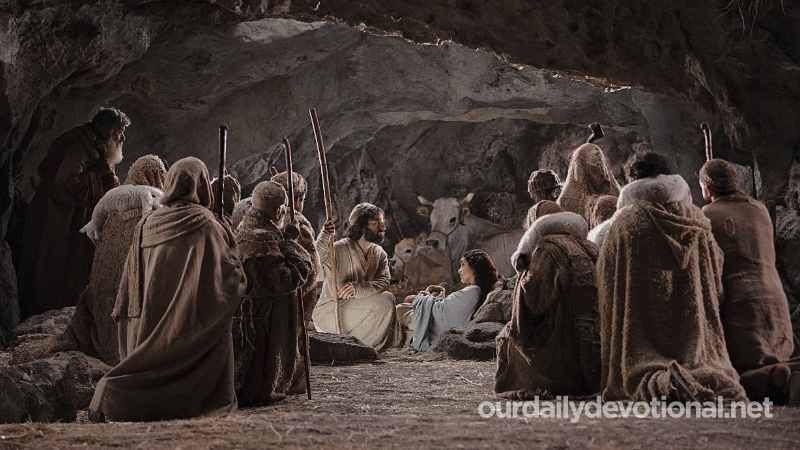Paul's 1st Epistle to the Corinthians was written during the apostle's prolonged stay in Ephesus (Eph. 16:8, 9, 19; Acts 19), probably in the year 54 or 55 AD. (some say 57).
Paul was very concerned about the state of the Corinthian church, which he had founded a few years before. He had already written to them once to warn them against the immorality around them, and against its influence in the church (1 Cor. 5:9-10).
This letter has not reached us. Later, he received a delegation of Corinthians (1 Cor. 16:17) and, furthermore, reports about the divisions that were tearing the church apart (1 Cor. 1:11).
He had earlier sent Timothy to Corinth through Macedonia (1 Cor. 4:17; 16:10), but the latest news caused him to write this epistle immediately. Certain exegetes believe that Paul himself went to Corinth, after Ephesus, making a brief, unreported visit, in order to impose discipline on the church; They deduce this from 2 Cor. 12:14; 13:1, based on what he says about going to them “a third time,” while Acts only tells us about his first visit.
According to some, this visit would have been before the writing of 1 Corinthians; other authors, however, place it later.
(A) Author.
The attribution of this letter to Paul is abundantly attested after the first century. Clement of Rome, the Didache, Ignatius, Polycarp, Hermas, Justin Martyr, all bear witness to its authenticity; Irenaeus quotes it more than 60 times; Clement of Alexandria, 130; Tertullian, around 400 times.
The Muratori Canon places 1 Corinthians at the head of Paul's epistles. A good deal of internal evidence confirms that the apostle is indeed the author (cp. 1 Cor. 1:1; 3:4, 6, 22; 16:21).
The entire epistle corresponds with the account of Acts and with what we know about the church and the city of Corinth on the one hand, and the life and teachings of Paul on the other.
(B) Importance.
1st Corinthians has great importance. It exposes in an orderly manner the practical issues regarding the life of the church, and the points of doctrine that concerned the faithful.
The epistle is written with great care; he presents irresistible arguments regarding teaching, and solves moral and ecclesiastical problems with great wisdom; sheds much light on the state of the churches established among the heathen.
(C) Content.
After the greetings (1 Cor. 1:1-9), the following questions are addressed:
(I) Divisions within the Church (1 Cor. 1:10-4:21). Factions had emerged, claiming to follow certain teachers, and undoubtedly reflecting certain particular theological tendencies.
Paul mentions those who are of Paul, those of Cephas, those of Apollos, etc.; undoubtedly taking these names as examples, so as not to name anyone directly.
Paul declares to them that in reality they all had to depend on the crucified Christ. He reminds them of the inspired authority with which the Gospel was announced to them at the beginning; and then he shows the secondary role of every preacher of the Gospel, even if he is an apostle: no one should be made a head of faction, but rather seek to glorify God by naming himself solely by the name of Christ.
(II) The duty to exercise and enforce ecclesiastical discipline (1 Cor. 5; 6), especially in cases of sins of immorality: the church of Corinth tolerated a humiliating example within itself.
(III) Instructions regarding marriage and divorce (1 Cor. 7).
(IV) Christian freedom and voluntary restrictions regarding food sacrificed to idols (1 Cor. 8-11:1).
Paul had freely renounced his privileges in order to win as many souls as possible (1 Cor. 9). Freedom should not be transformed into license, since everything must be done for the glory of God (1 Cor. 10-11:1).
(V) Warnings against certain abuses in public worship, and the behavior of women based on the relative position of God, Christ, the male, and the female (1 Cor. 11:2-34), and as to the way to celebrate the Lord's Supper.
(VI) Instructions regarding the appreciation, exercise, and discipline in the use of spiritual gifts, and the supreme value of love (1 Cor. 12-14).
(VII) Instruction concerning the doctrine of the resurrection of the dead, concerning which there were some inclined to doubt (1 Cor. 15).
(VIII) Way of acting regarding the collections made for the Christians of Judea, and conclusion regarding the apostle's travels and his personal circumstances (1 Cor. 16).
The 2nd Epistle to the Corinthians was written in Macedonia (2 Cor. 2:13; 7:5; 9:2, 4), shortly after Paul had left Ephesus (Acts 20:1), perhaps the same year in which was written in 1st Corinthians, or in the autumn of the following year.
Timothy was again with the apostle (2 Cor. 1:1). Titus and another Christian had returned after being sent from Ephesus to Corinth (2 Cor. 2:13; 7:6, 7, 13, 14, 15; 12:18) with instructions for the church to take immediate action. disciplinary action against a man guilty, probably of incest (1 Cor. 5:1).
This man had publicly challenged the authority of the apostle, persisting in his sin, and compromising the balance of the church. Titus was to meet Paul at Troas; Not having found him there, the apostle became extremely worried, and set out for Macedonia.
Titus gave him the news in Macedonia that the Corinthians had acted firmly regarding the culprit, who had humbly acknowledged his sin.
The apostle then wrote the epistle that Titus, accompanied by two other disciples (2 Cor. 8:16-24), took to Corinth. This epistle reveals the apostle's torment at the idea that the Corinthians could be disloyal to him; It bears the imprint of the terrible strain to which he was subjected due to the spiritual dangers that beset them.
(A) Content.
This epistle has three essential sections:
(I) In chapters 1 to 7 Paul pays tribute to the goodness of God who has delivered him from trial (2 Cor. 1:1-14); he rejects the charge of Lightness (2 Cor. 1:15-2:4); He orders the Corinthians not to exceed the limits of the discipline exercised against the guilty (2 Cor. 2:5-11), then he describes the ministry that has been entrusted to him: this is a spiritual ministry (2 Cor. 3); sincere (2 Cor. 4:1-6); accompanied by suffering (2 Cor. 4:7-18), but also by hope (2 Cor. 5:1-10). Inspired by Christ Himself (2 Cor. 5:11-17), it is essentially a ministry of reconciliation (2 Cor. 5:18-6:2).
Paul summarizes what this ministry has meant to him (2 Cor. 6:3-10), and on this basis he appealed to the Corinthians (2 Cor. 6:11-18). The apostle is encouraged and rejoiced (2 Cor. 6) because the Corinthians have recognized the well-foundedness of his ministry.
(II) In chaps. 8-9, Paul speaks of the collection organized for the Christians of Judea, and develops the theme of liberality.
(III) Caps. 10-12: Pablo defiende de nuevo, de una manera conmovedora pero firme, la autoridad de su apostolado.
Termina volviendo a poner en guardia a los corintios contra sus pecados habituales, y declara que, durante su próxima visita, no los va a tratar con miramiento alguno si persisten en su anterior manera de conducirse.
(B) Autenticidad.
La autenticidad de 2ª Corintios está abundantemente demostrada por su propio contenido. Son evidentes los elementos esenciales de la teología y de la escatología de Pablo.
El apóstol defiende su apostolado, y subraya el carácter glorioso del ministerio cristiano. Más que en otra cualquier ocasión da rienda suelta a su corazón, explicando las razones de su conducta en difíciles circunstancias de debilidad física y de persecución por parte de los legalistas judaizantes.
Nadie hubiera podido inventar una serie tan completa de circunstancias con tantas evidencias de veracidad.
La 2ª Epístola a los Corintios se difundió menos rápidamente que la 1ª.
No es mencionada por Clemente de Roma, al final del siglo I. En cambio, sí es mencionada por Policarpo (hacia el año 115) y por Marción (140); figura en el Canon de Muratori (hacia el año 170). También está confirmada por Ireneo, Teófilo, Atenágoras, Tertuliano y Clemente de Alejandría.
Ciertos exegetas han sugerido que los capítulos 10-13 representan una sección extraída de una carta anterior, de un tono más severo que lo que indica el comienzo de 2ª Corintios.
Pero esta suposición no tiene el apoyo de la más mínima prueba interna, y no se halla ni rastro de tal hecho en la historia del texto del Nuevo Testamento.
El arrepentimiento de toda la iglesia e incluso del culpable (2 Co. 2:3-11; 7:8-12) parece haber sido el resultado de la intervención de Pablo en 1 Co. 3-6.
Por otra parte, el apóstol no menciona en 10-13 ningún caso concreto de disciplina que tenga que ser llevado a cabo.
Meaning of CORINTHIANS (1st Epistle)
Paul's 1st Epistle to the Corinthians was written during the apostle's prolonged stay in Ephesus (Eph. 16:8, 9, 19; Acts 19), probably in the year 54 or 55 AD. (some say 57).







